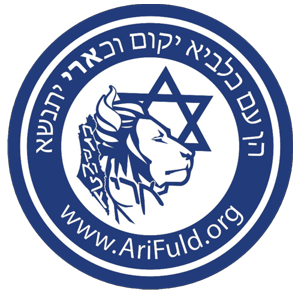https://www.facebook.com/AriFuld/videos/10157997264160541/
This D’var Torah about Chanukah has been adapted from Ari Fuld’s Grill and Torah D’var Torah that he gave on Friday, Dec. 23, 2016, the 23rd of Kislev 5777. The raw transcript is below the edited version.
I want to talk to you a little bit about the spiritual meaning of Chanukah.
Many people have gotten mixed up and make false assumptions about Chanukah, believing it is just a Jewish Xmas. That’s a huge mistake.
First of all, Chanukah existed long before the Christian holiday, but also, the ideas behind it, our traditions for it and what the message is, are really completely and totally different.
As we all know, Chanukah comes out on the 25th day of the month of Kislev.
Again, it might be a coincidence that the Christian holiday comes out on the 25th of December, but as I said, Chanukah existed long before the Christian holiday. I’m repeating myself, only because I want to get this incorrect idea out of people’s heads, that some people believe these two very different holiday are variations of the same theme.
I’m not going to compare Judaism and what happens in other religions, that’s not my goal here. We have to respect other people’s beliefs as long as they are not attacking us. What I want to do is to talk about Chanukah itself.
Many of us, including myself, grew up thinking we knew and understood what the message of Chanukah really was, it’s a really strange holiday if you think about it. But when you have all the facts in front of you, one begins to realize you never really understood what the holiday was all about.
After their victory, the Jews entered the Beit HaMikdash, the Temple, looking for a sealed flask of oil. The Syrian-Greeks had made everything on the Temple Mount completely impure.
As an aside, this part of the story happened on the Temple Mount, in the Beit HaMikdash located on the Temple Mount. Not to get into politics, but everyone should remember the Jews were worshipping God from the Temple Mount long before Christianity or Islam existed, and certainly there was no “Palestinian” anything there, but we’re not getting to that discussion today.
The Menorah, the seven-branched Menorah had to be lit, and the tradition is that it had to be lit with spiritually pure (Tahor) oil.
Purity (Tehorah) is not something you can see, smell or taste. Purity is a spiritual status, and for someone who doesn’t believe in spirituality or God, there’s no effective difference between something pure (Tahor) and something not pure (Tameh).
Going back to our question, what is really the miracle of Chanukah?
There are two miracles we commonly talk about, when we talk about the holiday of Chanukah. Let me give two initial answers to the question.
One option is obviously the war.
We say in our Chanukah prayer that we were the few against the many, we were the weak against the strong, we were the pure against the impure… but that particular miracle of the war was really about physical power.
The fact was that we were the complete and total underdogs, and somehow we won the war, against all odds.
That was one miracle.
The other miracle, the more famous one that people know about was the miracle of the oil. After they won the war, the Jews came back into the Beit HaMikdash, back into the Temple, and went looking for pure oil.
In the Beit HaMikdash, the pure oils were in flasks that were sealed, and on the seal there was a ring-stamp of the priest. As long as the oil is stamped and sealed in that flask, it is considered pure. And if it is not sealed, if the seal gets broken, that means that the oil is not pure and cannot be used to light the Menorah.
When the Jew came back to the Temple they discovered that everything inside had been made impure. The Greeks completely impurified everything and broke all the flasks of oil. The Jews found one small flask that was still unbroken and they put in a little bit of oil into each branch of the Menorah and it stayed lit for eight days, despite that it had only enough oil to stay lit for one day.
And that was the second miracle.
If I asked you, which one of the two was the bigger miracle, most people would say the oil because that was obviously a supernatural miracle. But I have to disagree with that. I would say that the bigger miracle was the war.
Why am I saying that?
Think about each miracle and what they mean for us. What miracle made a bigger difference for us?
A war for our very survival? Or that God made a magic trick kept the oil lit for eight days?
God created the world. Keeping a candle lit for eight days is like a magician pulling a rabbit out of a hat, it’s no big deal.
Furthermore, keeping the candles lit doesn’t affect or impact our lives at all.
But in terms of the war, that affects us, we survived. That’s a major impact on our lives.
But there’s another question, why in our Chanukah prayers, do we thank God for helping us win the war, while we don’t even mention the idea of the oil at all?
I think the answer is as follows:
When it comes to war, we fought the war and there is a very dangerous mistake that can develop – we might begin to think that it was we alone who won the war – us, our weapons, our planes, our tanks, our soldiers. And mistakenly, we will not turn to God to say thank you.
So we specifically only mention the war in our prayers, to focus on that point and internalize the source of our victory.
But still, there also had to be an obvious supernatural element.
For God, there’s no difference between the supernatural and the natural. They’re the same, it all comes from God. That we get confused, for instance by rain, and we often think of it as something natural, and not as coming from God, is our mistake, and our problem.
But because we are often so blinded to God’s presence in the world, we ignore the natural miracles or seemingly non-miracles, and we sometimes need some a supernatural trick to make us realize that the entire series of natural events was actually all miraculous.
Before answering the question as to what miracle are we celebrating on Chanukah, let’s simply ask what are we celebrating on Chanukah?
We’re celebrating two things.
Yes, we’re celebrating our physical victory over our enemies. But we’re also celebrating our spiritual victory over our enemies who tried to destroy us also on a spiritual/religious level. The Greeks didn’t want to destroy us, they wanted us to be just like them, to assimilate – Give up the Torah, give up Shabbat, give up Kashrut, be like us.
And we said, no, no, no. No way. No way, no how.
This is the message, and this is the answer to the question as to what was the real miracle of Chanukah – the idea at the end of the day, is that the war was won by the pure [Tahor] oil. Our victory wasn’t just physical, the miracle is that our victory was also spiritual [ideological, conceptual, religious etc.].
Someone not attuned to the spiritual message might ask, “What’s the difference? We [physically] won.”
We say there is a difference.
We can’t perceive purity in any way? That’s totally irrelevant. We will fight to make sure this purity survives, and this is really what Chanukah is all about.
As a postscript, we should also learn the lessons of Chanukah, not just the miracles.
The first lesson is to stand up and fight for what’s right, and the second lesson is to realize there’s more in the world than just physical things, and in the end, there is a spiritual difference between purity and impurity.
Wishing everyone a very, very happy Chanukah, signing off here from Efrat, in Judea, Israel.
Shabbat Shalom.
___________________________________________
RAW TRANSCRIPT
Well it is Friday afternoon here in Israel and we are getting ready, the last things we are doing for Shabbat, and I wanted to give you a little bit of Torah before we get going into this holy time of the week.
We are actually one day before the holiday of Chanukah and I do want to talk to you a little bit about the spiritual meaning of Chanukah.
We’ve all, many people have actually mixed up and made assumptions that Chanukah is just like the Jewish Xmas. So, it’s a huge mistake. Obviously Chanukah existed way long before the Christian holiday, number one, but number two, the idea behind it and our traditions for it and what the message is of it, is really completely and totally different.
So, I’m not really going to compare any other religion, that’s not my duty here obviously. We have to respect everyone’s beliefs as long as they are not attacking you. But what I want to do is to talk about Chanukah itself.
While many of us, including myself, grew up thinking we know or we understood what the message of this holiday is, it’s a really strange holiday by the way. When someone actually put the facts in front of us, we were quite taken aback, saying, whoa, wait a second, I didn’t really understand what we were talking about.
[Talking to viewers about inviting listeners and sharing new ideas about Chanukah]
As we all know, it [Chanukah] comes out on Kaf-Hey Kislev, the 25th day of [the month of] Kislev.
Is it a coincidence that the Christian holiday comes out on the 25th of December, I don’t know. But as I said, Chanukah existed long before the Christian holiday of Christmas came in. And I’m really going to show you, and again, I’m not comparing, I just want to get this idea that they are kind of the same thing, presents here, presents there, completely out of people’s thought process, because it is a very, very much a different holiday.
So the holiday of Chanukah is coming up, and there are two miracles we talk about on the holiday of Chanukah.
One miracle is the miracle of the oil, where, when the Jews came back into the Temple after the Greeks completely made the Temple impure, they were looking for a sealed flask of oil.
What happened was on the Temple Mount, remember we are talking about the Beit HaMikdash on the Temple Mount, and let’s not get into politics, the Jews were not governing, but actually worshipping on the Temple Mount before any Christians or Moslems existed, and certainly no “Palestinian” anything was there, but we’re not getting to that today.
What happened was, the Menorah, the seven-branched Menorah had to be lit, and the tradition is that it had to be lit by pure (Tahor) oil. Now purity is not something you can see, smell or taste. Purity is a spiritual status, and someone who doesn’t believe in spirituality or God cannot tell the difference between something pure (Tahor) and something not pure (Tameh).
So the question is, what is really the miracle of Chanukah?
Again, let me give both options.
One option is obviously the war. We say in the prayer that we were the few against the many, we were the weak against the strong, we were the pure against the impure, the holy against the unholy… but the miracle of the war was really about power. The fact that we were the complete and total underdogs, and we won the war and survived.
That was one miracle.
The other miracle, the more famous one that people know about was the miracle of the oil. That after they did win the war, the Jews came back into the Beit HaMikdash, back into the Temple, and they were looking for pure oil.
Now what happened in the Beit HaMikdash? The pure oils were in flasks that were sealed, and on the seal there was a ring-stamp of the priest. As long as the oil was sealed in that flask, it is considered pure. And if it is not sealed, if the seal is broken, that means that the oil is not pure and cannot be used to light the Menorah.
When they came back in everything was made impure. The Greeks completely impurified everything and broke all the flasks. The Jews found one small flask that was still unbroken and they put enough – there is actually an argument how they split up the oil into the different branches of the Menorah – but they put a little bit into each branch and it lit for eight days, although it had enough to light for one day.
So that’s the second miracle.
If I asked you, what was the biggest miracle, most people would say the oil because that’s what’s called a supernatural miracle. But I’ll disagree with that, and I would say no, that’s absolutely incorrect. I will say that the miracle is the war.
And why am I saying that?
Well think about the idea for us. What makes a bigger difference for us?
A war that we win and our survival? Or that God makes a magic trick and lights the oil for eight days straight. So God created the world. There’s no big deal for God having oil lit for eight days, it’s the rabbit out of the hat, it’s no big deal. God created the world, lighting oil for eight days is no big deal.
And it doesn’t affect us at all. The fact that God lit the oil for eight days – what does it do for us? Nothing.
But in terms of the war, that affects us, we survived.
So the question is, why in prayers, why do we actually say the prayer thanking God for helping us win the war, and we don’t even mention the idea of the oil?
I think the answer is the following:
When it comes to war, we fought the war and there is a very dangerous mistake to be made – that we won the war, and hey, it’s us, our weapons, our planes, our tanks, it’s our soldiers. And we will not turn to God and say thank you.
Therefore there had to be a supernatural element.
In God’s eyes there’s no difference, supernatural, natural. it’s the same, it all comes from God. Rain comes from God, everything comes from God.
So the fact that we think rain is natural is our problem, not God’s problem.
The war was the real miracle, but sometimes, because we are so blind to God’s presence in the world, we ignore that and we need a supernatural trick, which is really no big deal, as I said, God created the world. Therefore we need these candles.
I want to show you something, I’m going to turn my camera around.
There is my Chanukiah. It’s ready for Chanukah, and as you can see there are eight branches here. The difference between a Chanukiah and a Menorah is that a Chanukiah has eight branches to commemorate the eight days of Chanukah. The Menorah in the Beit HaMikdash had actually seven. I don’t have a picture here, and we’re not really supposed to make a Menorah that mimics the Beit HaMikdash.
[Yes, that’s my whisky, and that’s of course my beautiful wife.]
But the point is, that the Chanukiah is eight.
So what are we celebrating on Chanukah? We’re celebrating two things. We’re celebrating the victory over our enemies who tried to destroy us [also] on a spiritual level, [and] not just a physical one. The Greeks didn’t want to destroy us, they wanted us to be just like them – Give up the Torah, give up Shabbat, give up Kashrut, be like us.
And we said, no, no, no. No way. No way, no how.
And the idea at the end of the day, is that the war is won by the pure oil.
Those who are writing from non-spiritual views are saying, what’s the difference [how the war was won]?
Well we say there is a difference.
You can’t see it? Totally irrelevant. We will fight for that to make sure the purity stays, and this is really what Chanukah is all about.
So we’ll start lighting the candles tomorrow night. I am signing off because Shabbat is starting in another couple of minutes.
Wishing everyone a very, very happy Chanukah, and we should learn the lessons of Chanukah, the first is to stand up and fight for what’s right, and number two, realize there’s more in the world than just physical things, and the end there is a difference between purity and impurity.
Wishing everyone a Shabbat Shalom, signing off here from Efrat, in Judea, Israel.
Shabbat Shalom.


